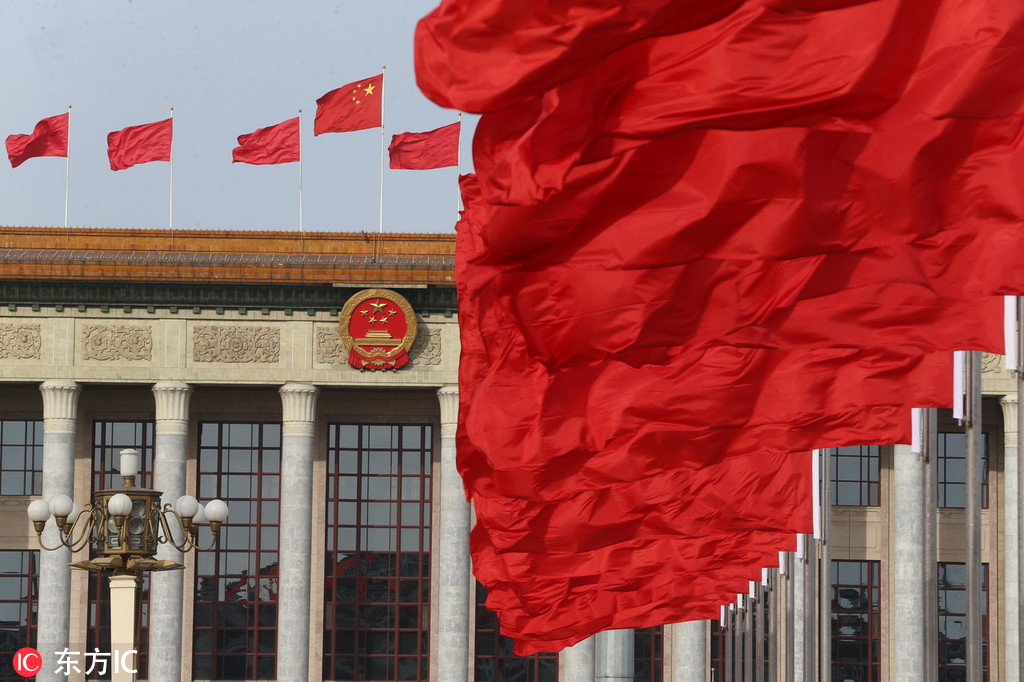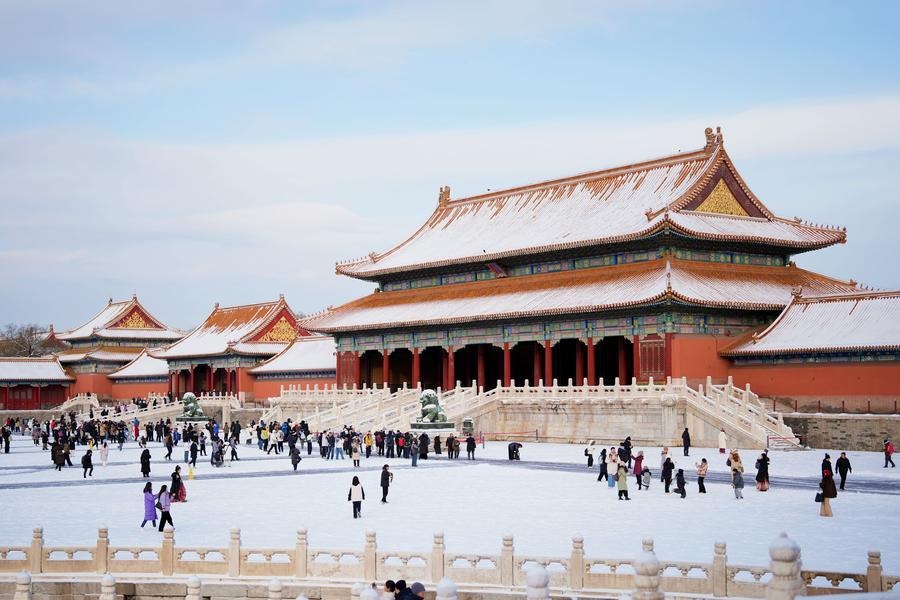Xi's thought to help modernize governance


The Communist Party of China has to improve the national governance system and enhance its governance capability, because they are critical to meeting people's expectations and ensuring the country's long-term peace and stability.
Xi Jinping's thought on governance of China is the summary of the historical tasks undertaken by the CPC since the founding of the People's Republic of China in 1949, and an incisive summation of the Party's top-level design for comprehensively deepening reform in the 21st century. It is also a scientific summary of the development of socialism with Chinese characteristics.
Under the guidance of Xi's thought, the modernization of the governance system has entered a new stage of all-round innovation and advancement.
The new concepts, new ideas and new strategies embodied in Xi's thought on governance are a combination of the innovation in the field of national governance, creating a new realm for the governance of a socialist country and providing theoretical guidance for China's governance and reform.
The framework of Xi's thought on governance has formed for the modernization of the governance system can be summarized as "one dream", "two goals", "three main lines", "four confidences" and "a five-pronged approach".
One dream, which refers to the Chinese Dream of national rejuvenation, shows the Party has stayed true to its colors. And that's why it has been advancing the modernization of China's governance system and governance capability in order to realize the Chinese Dream of national rejuvenation.
The Chinese Dream is, in the final analysis, the dream of the Chinese people and we have to believe that the people can achieve this goal. Only by following a people-oriented principle can we build a people-centric institutional system, coordinate the interests of various groups, build consensuses, gather all the forces to realize the great rejuvenation of the Chinese nation, make people participate in the modernization of the governance system, and help them feel a greater sense of gain by sharing the fruits of economic development.
Two goals refer to the "two centenary goals" of building a moderately prosperous society by 2020, and a great, modern, socialist country by 2050. Direction determines the road, and the road determines the destination. Practice has proved that China can continue on its prosperous path only by adhering to socialism with Chinese characteristics.
In this regard, the report of the 19th National Congress of the CPC gave a clear road map for the modernization of the national governance system and governance capability, while proposing that this goal be realized in two steps. Promoting the modernization of the national governance system and governance capability is an inevitable choice for the realization of the two centenary goals.
Three main lines refer to reforming the governance of the Party, the country and armed forces. By promoting clean governance within the CPC, we will help forge a strong leadership core for the modernization of China's governance system.
Deepening reform and innovation of government institutions, optimizing self-governance of governments at all levels and legalizing their functions, procedures, powers and responsibilities will help build a law-based and service-oriented government and consolidate the political foundation for the modernization of the national governance system. And the implementation of the strategy to strengthen the armed forces with Chinese characteristics and integrate military-civilian development through reform will provide strong support for the modernization of the national governance system.
Four confidences refer to the confidence in the path, theory, system and culture in the new era. To promote the modernization of China's governance system and capability, we must strengthen the four confidences. We should also learn from achievements of other countries and adopt their practices if they suit China's conditions and adhere to Chinese values while promoting the modernization of the governance system and governance capability.
Lastly, the five-pronged approach refers to promoting coordinated development of the economy, politics, society, culture and ecology. The national governance system is a set of closely intertwined mechanisms that cover the economic, political, cultural, social and ecological fields. In fact, the five-pronged approach calls for maintaining proper balance between economic, political, social, cultural and ecological development.
The new era calls for new actions. Xi's thought on governance is a scientific system with rich ideological connotations and logic, and provides the ideal guidance for the modernization of the governance system and governance capability, which in turn would help China realize sustainable, high-quality development.
The author is an assistant professor at the School of Public Policy& Management, Tsinghua University.The views don't necessarily represent those of China Daily.


































